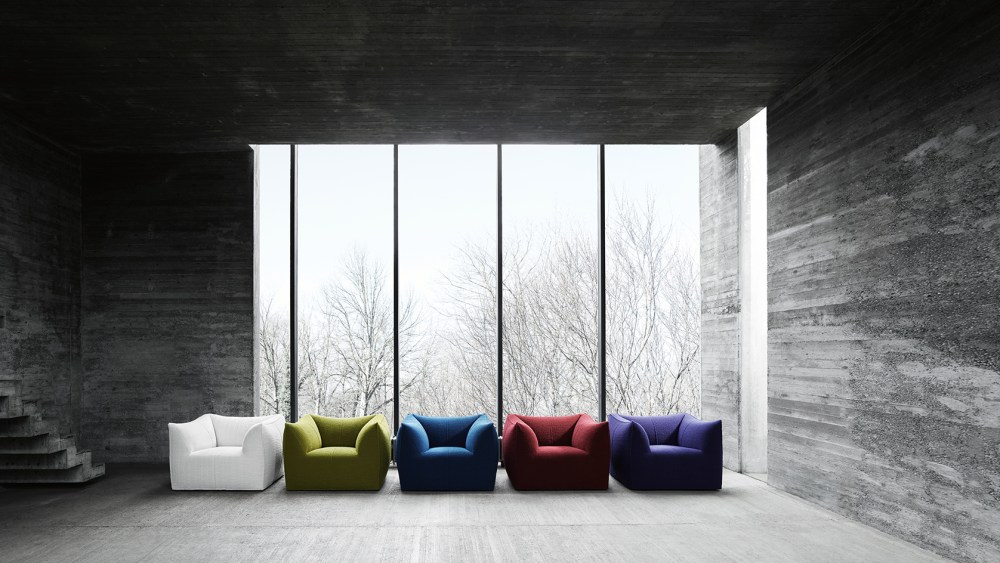MILAN — Smaller furnishings, decor and lighting companies that persevered through the financial crisis of 2008 and the post-COVID-19 pandemic downturn may not be able to go it alone now that U.S. President Donald Trump‘s tariffs have set in. Adding even more heat to beleaguered firms, on Aug. 22 Trump threatened further tariffs on furniture coming from other countries into the U.S., announcing on Truth Social that he was launching an investigation and would make a decision within 50 days.
One of the first cracks in the furniture market had already emerged in the U.S., hitting two century-old homegrown American brands: In July, it was revealed that The Howard Miller Company and Hekman, both Michigan-born firms steeped in history, would close their doors for good. Since the dawn of the housing market downturn, Howard Miller’s sales suffered. Higher tariffs were an added hurdle, it said, resulting in unsustainable costs for materials and components.
Looming Bankruptcies
You May Also Like
RH chief executive officer Gary Friedman said while his business is “profitable and well-poised to play a long-term game,” he expects a wave of closures and consolidation in the near to medium term.
“If there’s more than an incremental 10 percent tariff put on top of all the tariffs and furniture today, I think you’re going to see a massive amount of furniture companies go bankrupt. I don’t think there’s much more flexibility,” he told WWD in an interview, adding that a large portion of the tariffs will fall on the consumers, vendors and retailers.
Friedman said companies will begin to feel the burden as soon as the second half of the year. “You’ll start to feel it in the second half of this year. You’ll feel it more in the fourth quarter than the third quarter. You’ll really start feeling it in the first quarter of next year. And by the second quarter of next year, you’ll feel it at about 80 percent.”
In a recent report, TD Cowen also forecast a new wave of consolidation. More firms will suffer due to tariffs, along with the housing slowdown as key risks to the sector, with bigger players, especially in the building materials sector, poised to buy smaller companies to bolster their position in the construction market, as contract and the hospitality industry continue to drive business. In August, Lowe’s said that it agreed to buy interior building products distributor Foundation Building Materials for almost $8.8 billion, stepping up its expansion into the business that serves contractors and builders. Overall, “we think the industry is in the early innings of a long-term M&A cycle,” TD Cowen said.
Despite market woes like a housing slowdown in the U.S. and China, Corte Madera, Calif.-based RH recently finalized the acquisition of three trade-focused brands: furniture store Dennis & Leen, interior design firms Formations and Michael Taylor Designs. These three deals were originally revealed in 2022 and are in line with Friedman’s mission to become a major luxury player on a global scale and the biggest international design firm in the world. After opening the hotly awaited RH Paris gallery earlier this month, he said that he wouldn’t rule out an acquisition in Europe.
On the Lookout for Digital Solutions

Lee Mayer, CEO of interior design platform Havenly, said throughout its portfolio of brands the firm has been working to counterbalance trade measures by raising prices and continually evaluating price adjustments, as well as looking at all options from a supply chain perspective — both in terms of lower-cost countries, as well as countries with lower tariffs. The firm continues to keep a selective eye on potential acquisitions and agrees that the best of smaller brands will find “great homes” during this new chapter of consolidation.
“There are a lot of high-quality smaller brands that were already struggling to remain independent amid softer demand, rising marketing costs and constrained funding. With tariffs, it’s a real advantage to have consolidated buying power, as well as a scaled supply chain and marketing function to get profitability. The question is whether bigger companies have the appetite in their own constrained environment to take on smaller brands,” she said.
In Europe, tariffs aren’t the only thing setting off a wave of consolidation. Three conglomerates rule the luxury design industry — Haworth Lifestyle (an Italy-based division of Holland, Mich.-based Haworth Inc.); Dexelance, which is the only Italian company listed on the Italian stock exchange, and Flos B&B Italia group. The latter is in disarray after the departure of its former CEO Daniel Lalonde, who allegedly left over the investment fund’s decision to break up the company, in January. Its executive chairman Piero Gandini recently said the plan is definitely to sell off assets piece by piece.

Haworth, which is home to top European furniture and home firms Poltrona Frau, Cassina, Cappellini and Zanotta, has been planning to expand its market share and was, according to WWD sources, in the running to buy Flos B&B Italia Group’s furniture assets. After that deal fell through, its European luxury arm Haworth Lifestyle said that it streamlined the structure of the holding company to prepare for further growth, as it approached the milestone of 1 billion euros in revenue. After the EU and the U.S. agreed on 15 percent tariffs on European goods, Haworth Lifestyle CEO Dario Rinero told WWD, with some caution, that it is still a possibility.
“Regarding demand, the group is primarily focused on growing the many brands currently in its portfolio, without ruling out the possibility of continuing to grow through selected M&A transactions in the lifestyle sector,” Rinero said.

Dexelance has been on a shopping spree with no signs of slowing down and is home to upscale furniture brands like Meridiani and Gervasoni, and high-end lighting maker Davide Groppi. Lucia Nadal, formerly Flos B&B’s marketing and sustainability director, jumped ship in May and is now the general manager of Davide Groppi. It revealed the acquisition of chic outdoor furniture maker Roda earlier this year. In 2024, it bought a majority share in Turri, a luxury furniture business founded in 1925 in Carugo near Lake Como and took over lighting firm Axolight.
In July, Dexelance made a big foray into the world of omnichannel retail and distribution, unveiling an agreement to buy 65 percent of Mohd’s share capital for 44.3 million euros. This acquisition allows them to fuel their e-commerce goals on a global level and sell larger goods without the hassle of having physical spaces worldwide. Mohd currently has about 100 employees, including a team of architects specialized in the design of environments and interiors, residences, offices, hotels and showrooms to facilitate swift execution of delivery and completion of projects. It sells design pieces from 500 top brands through its six showrooms, online boutique and its dedicated project design service. It also manages residential and contract projects worldwide.

According to Alessio Candi, Pambianco consulting’s M&A director, top global companies in furniture by sales are U.S.-based MillerKnoll, RH, Haworth (which owns Poltrona Frau and Cassina), and Arhaus; Italy’s Flos B&B Italia; Sweden’s Fagerhult Group; Italy’s Molteni Group; France’s Roche Bobois, and Italian firms Dexelance and Poliform. Together, these groups generated 13.3 billion euros in 2024, driven by contract and online business. In 2024, contract represented 21 percent of all sales generated, while online generated 12 percent. This compares to 14 percent and 5 percent respectively in 2019.
In the upscale furniture and lighting business, demand is also high for the know-how housed in some of these smaller companies. In Italy, a global hub for furniture and lighting craftsmanship, there is an ongoing skilled-worker and artisan shortage.
A whole new generation of skilled personnel such as carpenters, machinery workers, designers, draftsmen, prototype-makers, upholsterers and sewers is needed to fuel the industry’s business into a new modern chapter of growth.
FederlegnoArredo, the Italian federation of woodworking and furniture industries, said it needs to groom between 22,000 and 34,000 specialists by 2028. At least 8,000 of these individuals are needed to fuel the wood industry, while more than 25,000 of them are needed specifically for the furniture sector. About 48 percent of these 22,000 to 34,000 individuals will require a second technical diploma, the association said. It has joined the Territorial Pact for Skills and Employment in the Furniture and Furnishings Manufacturing industries, which includes leading institutions, trade associations and local businesses. The initiative, financed by the region of Lombardy, is a pilot project promoted by the manufacturing-rich provinces of Monza and Brianza.
Looking ahead, Friedman said the industry needs clarity, amid what he calls one of the most “chaotic” chapters in world history. Firms are currently asking themselves: “How are you going to price the goods? How do you absorb the tariffs? How much can the manufacturers absorb? How much can the retailers absorb? How much are passed along to the customer?”



